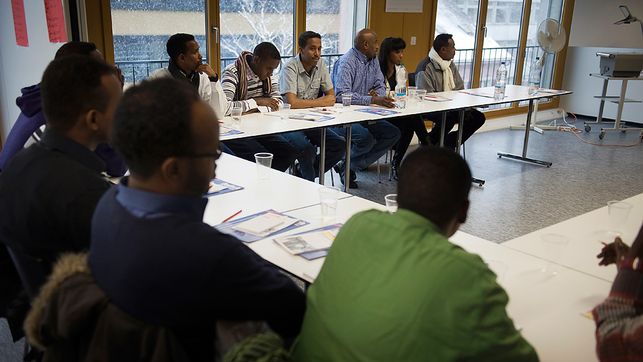
Many years ago, a friend of mine, who started travelling abroad regularly long before I even got a passport, used to warn me that it was very depressing for a Kenyan to travel to Europe.
And by this he did not mean that he was mistreated in any way. Not at all. What bothered him was that as he boarded the flight back to Kenya, looking back on what he had seen on this latest visit, he always came to the same conclusion: “We will never catch up with these people”.
Well, at this stage of my life, I have seen enough of famous capital cities not to be easily depressed by such contrasts with my own country. But I can fully understand why a younger Kenyan, burning with nationalistic fervour, might even now be depressed merely by looking at what passes for “normal routine” in a city like Berlin – which is where I am at present.
So, with the advantage of many years in journalism, and many such trips to foreign capitals, what do I see which younger journalists might not as easily appreciate?
Well, in my view, to look at flawlessly coordinated public transport, beautiful tall buildings, and immaculately clean streets misses the point. The fundamental difference between Germany and Kenya is that whereas the ‘average German’, whatever his occupation, enjoys a middle-class standard of living, the ‘average Kenyan’ is a desperately poor small-scale farmer.
Our sociopolitical structure is indeed humiliatingly similar to that which prevailed in Tsarist Russia in the 19th century: a tiny hereditary political and economic elite holding most of the power; a very small professional class (what we would now call the middle-class); and the great majority of citizens being rural peasants living in crushing agrarian poverty.
What really distinguishes a country like Germany then is that it has developed to a point where the great majority of people living there have easy access to first-class healthcare; they can be reasonably certain that their children will receive a decent education up to the limit of their academic ability; and, above all, they earn enough to have some disposable or discretionary income left after they have paid all their routine bills.
In general, a middle class, while varying to some degree from one nation to another, is defined by such factors as possession of tertiary education, aspiration towards home ownership, overseas travel, etc.
And no doubt there are many such people in Kenya. But at this point in our national history they are far too few.
And whereas in Germany one can rise to the middle class in all kinds of jobs, in Kenya you generally must have a university degree and a white-collar job. This greatly limits social mobility.
During a previous visit to Germany, I was the guest of an iconic German corporation, Bayer AG, the pharmaceutical giant. And, consistent with the prestige of my hosts, I was met at the airport by a driver who was as formally dressed as a banker or a diplomat and drove a late-model Mercedes Benz.
I did not get to talk to this man much though. For he promptly headed out at about 120kph all the way from Dusseldorf to Cologne – and I simply sat quietly in the back seat, marvelling at his skill. He overtook virtually every other car on the road with a casual expertise that would make Kenyan matatu or bus driver weep with envy. Of course he was breaking no laws in doing this, as there are no speed limits on the German autobahns (federal highways).
Fascinated by this incredibly skillful driving, I later asked someone at the conference what standard of living a limousine chauffeur in Germany could expect. And my suspicions were confirmed: it is not very much lower than that of a mid-level German technocrat.
So this driver’s family could readily be assured of most of the things which we Kenyans associate with prosperity – including, if they wanted it, a holiday to a Kenyan beach resort.
The point I am making though is that in an advanced industrial nation like Germany, if you are good at what you do, and are willing to work hard, you can rise to middle class comfort from a variety of occupations, outside those learned professions which require many years of college-level education.
While in Kenya even a university graduate can end up waiting for many years to get any job at all.










